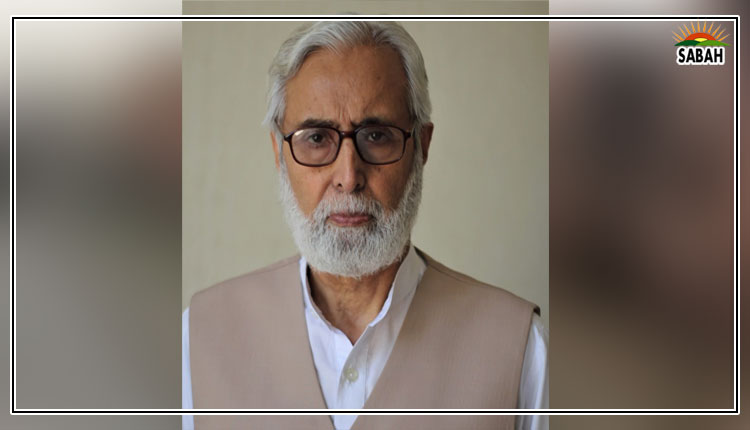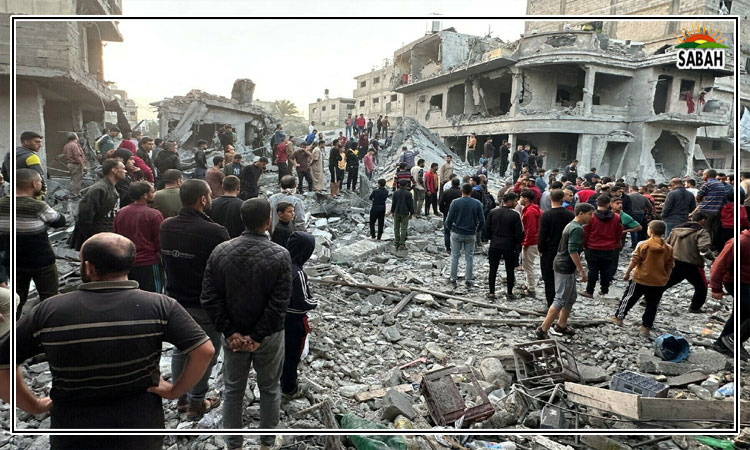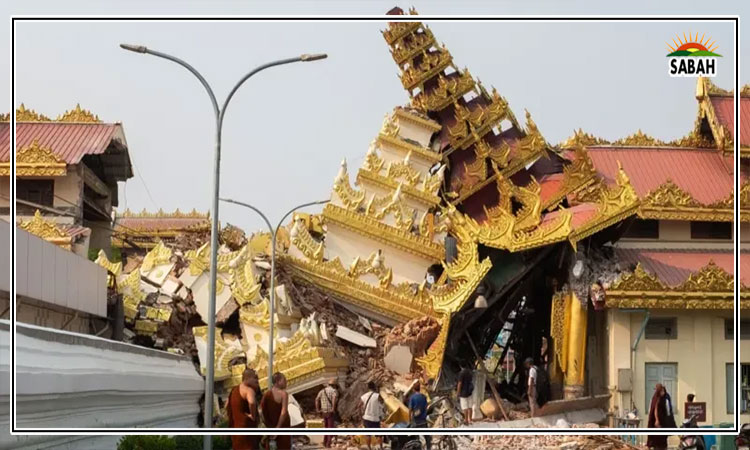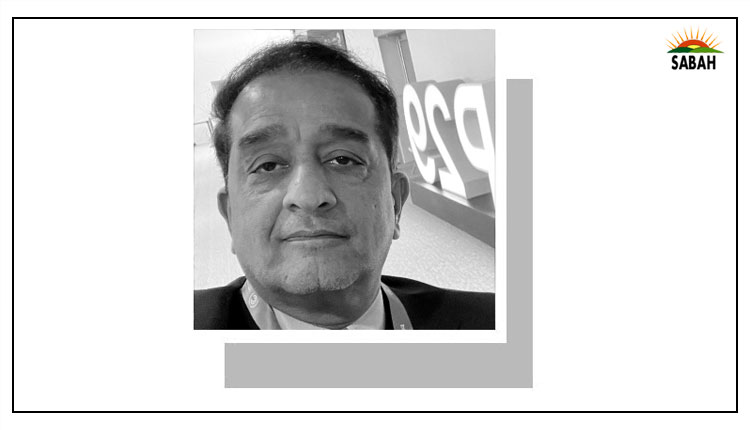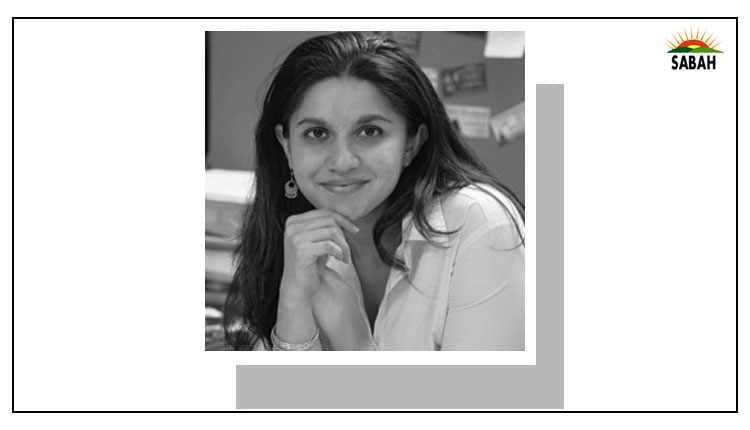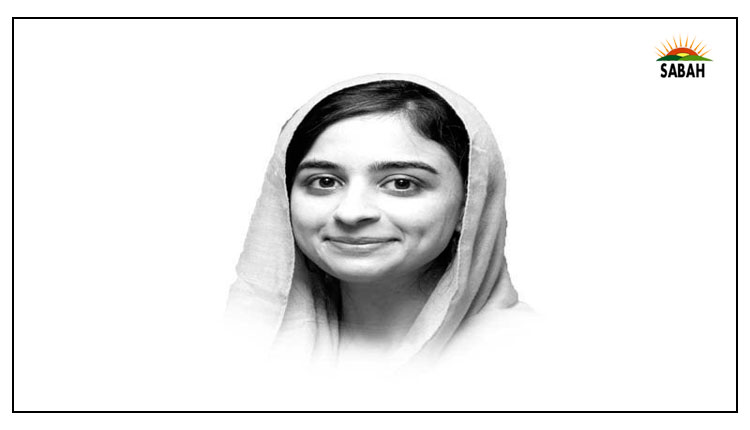The Ghost of Gaza …. Arhama Siddiqa
As the ghost drifted through the shattered streets of Gaza City, it felt nothing but an overwhelming silence. No air stirred in these ruins, no laugh voices, no laughter, no cries for help – just the grim stillness of death. Shuja’iyya Street, once filled with life, now lay in complete disrepair. An endless graveyard of bombed-out homes and the bodies of those who once lived with them.
In life, Shuja’iyya had been a thriving neighbourhood – children playing, vendors shouting, families gathering for meals – but that world had been murdered under rubble, along with so many of its people. The ghost stopped at the corner of a collapsed house. A child’s toy car lay half-buried under debris. It flickered in and out of sight, like an echo from another world. The air seemed heavier here, as though the weight of lost lives had a presence of its own.
Everywhere it went, the ghost saw traces of life intertwined with death. A dusty, faded, prayer mat still positioned as if waiting for someone to kneel upon it. A photograph of a young man taped to a broken wall – his face half-charred from the flames that had consumed his home.
The streets were empty now, but the ghost knew that even in this shattered world, there were still people hiding. Families still crouched in basements, huddled together in the dark, their whispers no louder than the crackling of fallen walls. They waited for bombs to stop falling, for some semblance of peace, even though they had forgotten what peace felt like.
A distant rumble shook the ground – another air strike. The ghost did not flinch. Time for the ghost was not linear.
The ghost turned towards the remains of what was once a school. Half the roof had caved in, scattering books and chairs across the ground. The ghost could see the outlines of young children, their forms now mere shadows. Once, they had run up and down the halls, laughing, shouting, dreaming of a future that had been obliterated by missiles launched from an unseen sky.
And yet, through the destruction, the ghost could also feel something else – resilience.
The people of Gaza had been broken, time and again, but they had not disappeared. Not entirely. There were ghosts of a different kind, still clinging to whatever remained of their lives. They rebuilt homes with whatever they could salvage, knowing they might be destroyed again. They tended to the wounded, even though medical supplies were scarce. They prayed for a future that seemed impossible to reach.
But it was the children that haunted the ghost the most. It had seen them in every corner, half -buried under debris, clinging to life in hospitals barely able to function. They were the future of Gaza, yet their lives had been stolen before they could even begin. The ghost could almost hear their laughter, like a whisper carried in the wind. It was faint now, but it was still there, still fighting to exist in a world that seemed determined to snuff it out.
The ghost reached the end of the street, where the ruins of a mosque stood tall. Its minaret had been blown apart, but the ghost could still feel the sanctity of the place. It hovered at the entrance, where worshipers had once gathered, where voices had once risen in prayer.
As it stood there, watching the remnants of Gaza beneath a sky darkened by smoke and ash, the ghost realised that it would never leave. This place had become its prison, not because it was bound to the land, but because it was bound to the suffering. Until the bombs stopped falling, until the people of Gaza could live without fear of death, descending from above, this would remain a land of ghosts.
And the ghost knew it was not alone.
Courtesy Express Tribune



